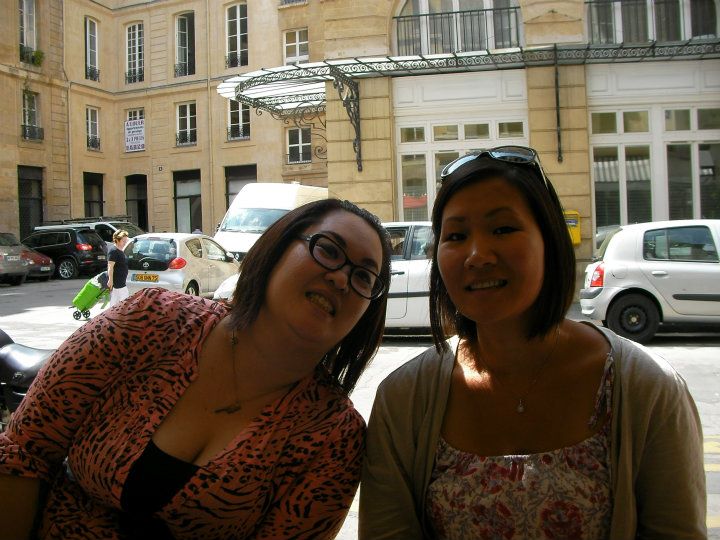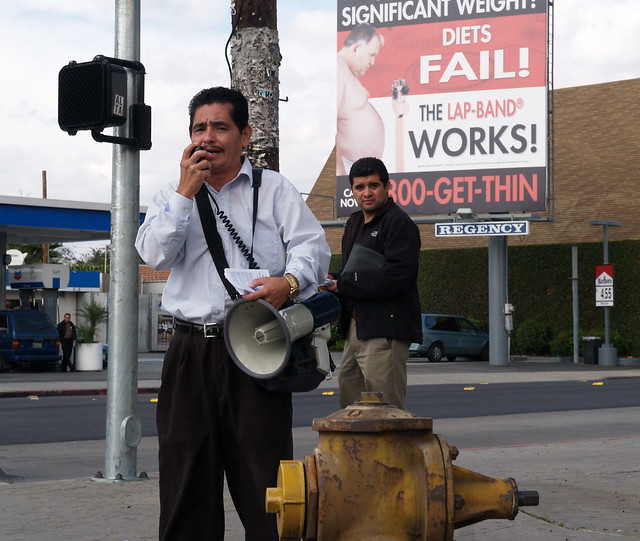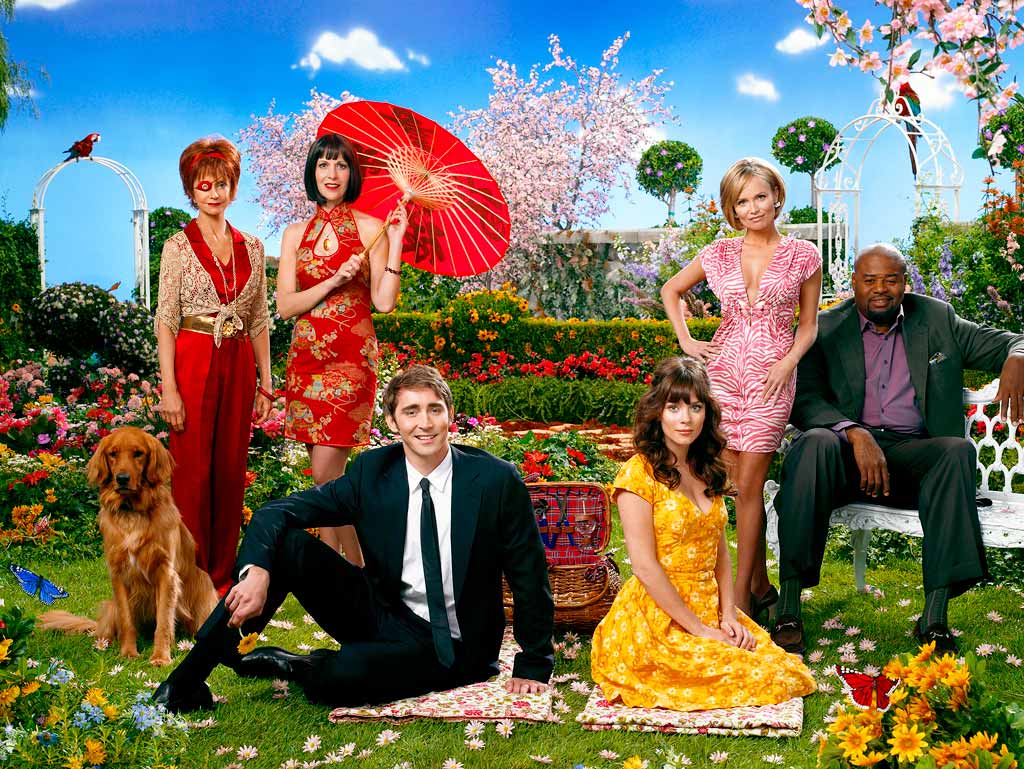Before I get into what I want to say, I want you to look at this picture. Maybe like a whole minute before you read anything else. Really. Don't just glance, look at this picture:
Now, I know it is a terrible angle, and that a cell phone replication isn't the greatest way to recapture an image. I get all of that. But there is something about this picture that for a few months captivates me every time I see it. I sometimes even avoid the hallway it is in, because I know I will stop.
And here is what I feel I am learning from it: this is a prophetic picture of the future of America if we want it. It is a picture of man helping man...period.
I think there is a key phrase in what I just said above that must be examined, and it really is the framework for everything written here - if we want it. And this type of desire is not rainbows, kittens and giggles. It is the type of want that we have to work for, strive for and go through fire to get. It requires payment, some of which has been paid, but we still owe immensely to obtain.
The other day I posted something on Facebook that was quite heartfelt. It was about my feelings of the perpetuation of "the other" in response to the verdict of Trayvon Martin and George Zimmerman. I thought it was really good, and so did quite a few others. It got a lot of likes. But one thing I noticed is that only one of my African American friends "liked" it. This could be a chance, in my own life to join the ranks of the "What's wrong with
them club?"
But here's the deal. My friends on Facebook are actual friends. Like, I have lived life in some regard with them. Admittedly most of my African American friends are from my time in Los Angeles. That is the one period of time where I had deep and meaningful relationships with non-white, non-hispanic people. Sure, that could speak poorly of me. But the reality is, crossing those lines in seminary and in church in L.A. is much easier than in Central Texas or Alabama. And I didn't know better in Texas, and I have to fight hard in Alabama to even make progress in cordiality often times.
The African American friends I made in L.A. are just like the rest of you. I worked with them, I worshiped with them, I hung out with them, I went to school with them, I shared meals with them. In other words, and I hate this word, but we all know what it means, these are not token friends. These are not friends I pull out of a back pocket to say, "See, even though I'm a Texan, I'm not so racist."
A couple of these friends, that I am forever thankful for, allowed me the space to say, "Hey, this is where I started, this is where I am, and this is where I want to be. Help me. Help me breakthrough the lies that have surrounded me all of my life." And I think, and only they can say for sure, at first my honesty was an affront. But because it was sincere, they saw that there was no malice intent. I was just a kid who had no ideas what a lot of African Americans, Latinos and Asian Americans went through. Because of their encouragement, and because my church had just folded I sojourned in a Black Church. I wanted to experience life as the minority. And Black Church (or Asian Church, or Native Church, etc.) was as close as I was ever going to get.
 |
| Friends from Pasadena Church. |
|
Admittedly, I went to a black church that was striving toward racial diversity so it was easier. The pastor was also quite contemporary and the congregation was behind the vision. Even still there were rough days. There were men and women who remembered this being a good, strong black church. Their hearts had a hard time with change. At the end of the day could I say that I understood what it was like to be the minority? No. But at least it was a small enough taste to know that there was in fact something different going on. And that friends, is the message I can bring in the midst of this.
What I can say is this: there are different America's being experienced today. For the most part if you live in a homogenous neighborhood or city things aren't that bad. As we know however statistically most homogenous neighborhoods are white. There may be a few places that are strictly Latino or Black, or even Korean, Chinese or Native American, but for the most part, even if these places have relative peace, lands like the reservations or border towns are relatively poor and have substandard education, law enforcement and the like.
I also know this: I have friends who get pulled over for the color of their skin. They wouldn't lie to be about this. These are good people that I have entrusted my life to, that fight with every fiber of their being for reconciliation. So, to combat a stereotype we see played out these days, these are not "Angry Black Men and Women." These are men and women that have nothing to gain by telling me a lie. And those friends tell me that they are experiencing a different America.

Another thing I know: a lot of Whites don't understand why this case is Black-White. And as racist as this sounds it's because most people look at this man and do not see a White guy. They see a Hispanic, a Latino, or in the worst cases a "Mexican." (Worst cases meaning people who call all Latinos/Hispanics Mexicans, not that Mexicans are bad people.) What they don't realize is the dude is half-white. His dad is White; his mom Hispanic. But in today's America that one half determines the whole.
So, why be so negative? Why do I help perpetuate the problems of segregated America?
As you could imagine, I just don't see it that way. I don't see that I am saying anything that isn't already true. In this sense I am recording what already exists. The truth is that until we are able to acknowledge that there are co-existing American narratives that are true we will not see true racial harmony or acceptance. In most cases we have what I like to call tolerance. There is almost a pervading idea that "If I have to, I will," across our country. And we take that as enough.
But the problem is it limits what any of us can do. If Whites feel that their programs that reach out to ghettos and minorities are so great they are failing to embrace the humanity of those they serve. Sure, the program is good, but more than likely you are serving a charity not a person. It still leaves you as superior until you decide to actually do some life with others.
On the other side of the coin the limits are obvious. Poor education, sky rocket arrest levels, suspicion just for looking different. These are all limits. But there are other limits too such as behavior modification for the sake of acceptance, limited scope for your future, loss of hope and a continuous performance just to be accepted. Heck, having to get an education just to have your voice heard is a problem. And these things exist.
This post could go on-and-on. This is like an ice cube chipped off an ice berg. It isn't even a one-billionth part of the issue. But, I want to by saying this. I asked a few of the friends I mentioned above to write a response to what I wrote here. Because truth be told, I could still be flying blind here. And I hope that they have the time to respond. It will also just provide some perspective from voices I trust. These won't just be "flaming voices of dissension," they will be well-thought and worded...but most importantly written in love.
Until then, let's have a conversation. Let me know what you are thinking about these ideas.















